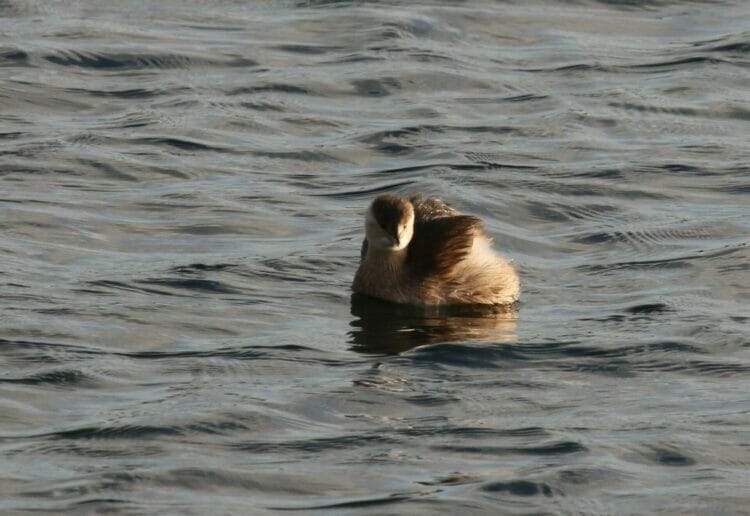On Tuesday, December 13 group members braved icy conditions to attend the annual Christmas members evening, with short talks by members of the group on the Dominican Republic, the Galapagos Islands, Poland’s Biebrza Marshes and the diverse species of funghi to be found at RSPB Pulborough Brooks.
This was followed by festive food and drink.
We started our New Year programme on January 10, with a talk by Oliver Smart on the birds of Cuba. Oliver is a renowned wildlife photographer who also guides birding trips.
Cuba is the largest Caribbean Island and is around half the size of the UK.
It has a wide range of interesting habitats including mangrove swamps, cloud forest and limestone mountains and caves. Its position between South America and Florida means that it attracts passage migrants and overwintering birds, bringing the total number of recorded species on the island to an impressive 368.
There are also 24 species endemic to the island, including the endangered Fernandina flicker and the Cuban parrot, both suffering from the effects of forest clearance. Cuba also has the tiny bee hummingbird which, at just 57mm long and weighing 4.5g, is about half the size of a goldcrest. Its wings beat at an astonishing 80 beats per second.
Hopes for the future protection of habitat and wildlife rest with education programmes for children and emerging facilities for wildlife tourism which has the potential to provide a welcome source of income in what is still quite a poor region.
On Sunday, January 15, six of us visited Dorney Wetlands and Eton Wick along the Jubilee River between Maidenhead and Windsor. It was a sunny morning and bitterly cold in the fresh wind, but it was worth it.
The main river was quiet with just the odd Mute Swan, Tufted Duck, Great Crested Grebe and Black-headed Gulls but when we got to the flooded field and pool at the sluice at Eton Wick the sheltered ditch held lots of overwintering Chiffchaffs flitting back and forth, plus a few Cetti’s Warblers which showed themselves surprisingly well for a bird that likes to stay hidden in thick vegetation.
The flooded field held 9 Shelducks, a handful of Lapwings and hundreds of Black-headed Gulls with two Common Gulls. So we had a good morning bird watching and recorded 39 species.
On Tuesday, January 17, 12 of us met up in the Bury Down car park on the Ridgeway above West Ilsley. Luckily it was not windy but it was a frosty morning although the sun tried to come out the warm us up a bit.
We walked along the Ridgeway past Cow Down looking for the special birds that can be found here. Corn Buntings used to be widespread on farmland but are now very restricted to a few areas such as this, so it made the trip worthwhile to get good views of six or more.
Another farmland bird that used to be very widespread is the Yellowhammer, we also found some here. They are lovely colourful yellow birds which stand out well compared to the rather drab Corn Bunting. Another bird of the hills and open areas is the Raven, we saw two which we located as they flew about making their distinctive cronking call.
Two other highlights were the large flocks of Skylarks in the fields and also a covey of Red-legged Partridges. We had an enjoyable walk and saw 21 species of bird.
On Tuesday, February 14, there will be a talk by Pauline and Colin Butcher on UK Islands, Wildlife and Volunteering. On Sunday, February 19, there will be a minibus trip to the RSPB Rye Meads reserve in Hertfordshire and on Tuesday 21 there will be a trip by car to Virginia Water in Windsor Great Park.
In March our programme continues with a talk on Tuesday 14 by Gary B Prescott, aka the “Biking Birder”, on Egyptian Adventures: Birds, People, Places and Unexpected Encounters.
The outdoor trips in March will be a walk at Moor Green Lakes near Finchampstead on Sunday, March 19 and a trip to RSPB Otmoor near Oxford on Tuesday 21.
Indoor meetings are held in Pangbourne Village Hall starting at 8pm. Visitors are very welcome. There is an entrance fee of £5 for non-members, juniors half price.
New members are always welcome with annual membership set at a modest £15 (£10 for juniors).
For more information visit https://group.rspb.org.uk/reading
























